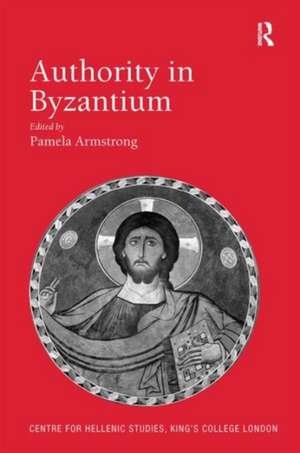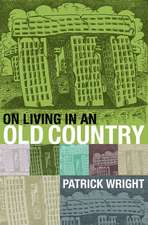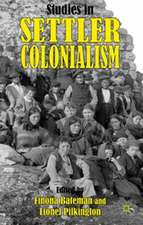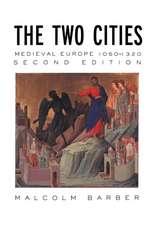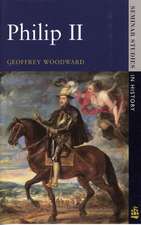Authority in Byzantium: Publications of the Centre for Hellenic Studies, King's College London
Editat de Pamela Armstrongen Limba Engleză Hardback – 18 mar 2013
Din seria Publications of the Centre for Hellenic Studies, King's College London
- 18%
 Preț: 1000.27 lei
Preț: 1000.27 lei - 18%
 Preț: 1000.27 lei
Preț: 1000.27 lei - 18%
 Preț: 1057.89 lei
Preț: 1057.89 lei - 18%
 Preț: 1061.81 lei
Preț: 1061.81 lei -
 Preț: 489.26 lei
Preț: 489.26 lei - 26%
 Preț: 763.78 lei
Preț: 763.78 lei - 26%
 Preț: 819.90 lei
Preț: 819.90 lei -
 Preț: 389.66 lei
Preț: 389.66 lei - 16%
 Preț: 263.56 lei
Preț: 263.56 lei - 17%
 Preț: 259.98 lei
Preț: 259.98 lei -
 Preț: 389.38 lei
Preț: 389.38 lei -
 Preț: 463.58 lei
Preț: 463.58 lei - 17%
 Preț: 259.98 lei
Preț: 259.98 lei -
 Preț: 436.14 lei
Preț: 436.14 lei -
 Preț: 419.65 lei
Preț: 419.65 lei - 18%
 Preț: 1008.30 lei
Preț: 1008.30 lei -
 Preț: 311.41 lei
Preț: 311.41 lei
Preț: 1068.91 lei
Preț vechi: 1303.55 lei
-18% Nou
Puncte Express: 1603
Preț estimativ în valută:
204.56€ • 212.27$ • 170.98£
204.56€ • 212.27$ • 170.98£
Carte tipărită la comandă
Livrare economică 15-29 martie
Preluare comenzi: 021 569.72.76
Specificații
ISBN-13: 9781409436089
ISBN-10: 140943608X
Pagini: 388
Dimensiuni: 156 x 234 x 22 mm
Greutate: 0.86 kg
Ediția:New.
Editura: Taylor & Francis
Colecția Routledge
Seria Publications of the Centre for Hellenic Studies, King's College London
Locul publicării:Oxford, United Kingdom
ISBN-10: 140943608X
Pagini: 388
Dimensiuni: 156 x 234 x 22 mm
Greutate: 0.86 kg
Ediția:New.
Editura: Taylor & Francis
Colecția Routledge
Seria Publications of the Centre for Hellenic Studies, King's College London
Locul publicării:Oxford, United Kingdom
Cuprins
Contents: Preface; Introduction; Part I The Authority of the State: Aspects of moral leadership: the imperial city, and lucre from legality, Jonathan Shepard; Trial by ordeal in Byzantium: on whose authority?, Ruth Macrides; A case study: the use of the nominative on imperial portraits from Antiquity to Byzantium, Sergey Ivanov; Response, Susan Reynolds. Part II Authority in the Market-Place: Displaying the emperor’s authority and kharaktèr on the marketplace, Cécile Morrisson; The authority of the Eparchos in the markets of Constantinople (according to the Book of the Eparch), Johannes Koder; Response, Chris Wickham. Part III The Authority of the Church: Coming of age in Byzantium: agency and authority in rites of passage from infancy to adulthood, Jane Baun; The authority of the Church in uneasy times: the example of Demetrios Chomatenos, archbishop of Ohrid, in the state of Epiros, 1216-1236, Günter Prinzing; Response, Miri Rubin. Part IV Authority within the Family: Family ties, bonds of kinship (9th-11th centuries), Christine Angelidi; The limits of marital authority: examining continence in the lives of Saints Julian and Basilissa, and Saints Chrysanthus and Daria, Anne P. Alwis; Response, Janet Nelson. Part V The Authority of Knowledge: Knowledge in authority and authorised history: the imperial intellectual programme of Leo VI and Constantine VII, Paul Magdalino; The authority of knowledge in the name of the authority of mimesis, Charalambos Bakirtzis; On whose authority? Regulating medical practice in the 12th and early 13th centuries, Dionysios Stathakopoulos; Response, Alexander Murray. Part VI The Authority of the Text: Believe it or not: authority in religious texts, Albrecht Berger; From the workshop of Niketas Choniates: the authority of tradition and literary mimesis, Alicia Simpson; ’And many, many more’: a 16th-century description of private libraries in Constantinople, and the authority of books, Marc D. Lauxtermann. Part VII Exhibiting A
Notă biografică
Dr Pamela Armstrong is Director, Oxford Byzantine Ceramics Project, Member of the Sub-faculty of Archaeology, Institute of Archaeology, and Member of Common Room, Wolfson College, University of Oxford, UK.
Recenzii
'This is a wonderful collection of papers.' Bryn Mawr Classical Review 'A prize for diversity of content can be awarded to the contributors.' English Historical Review
Descriere
The invisible force of authority bound the diverse groups in the Byzantine state and maintained its existence across many centuries. The present volume brings together an international cast of contributors to explore the many aspects and construction of authority within the state, the church and the family. They examine the authority of knowledge and text, the depiction of authority, and lastly, the legacy of three great scholars of Byzantine studies. Five of the sections are followed by responses from a specialist in the western Middle Ages bringing a wider European perspective to the subject.
